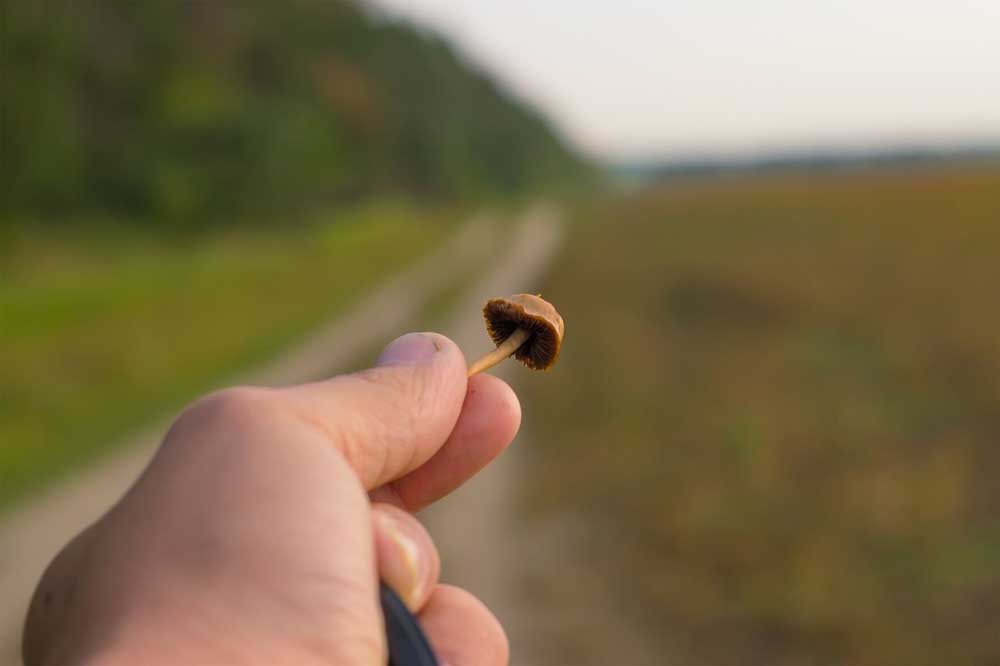County voters to decide psilocybin ban
Published 9:53 pm Tuesday, October 18, 2022

- A psilocybin mushroom.
ENTERPRISE — Just about two years ago, in the November 2020 election, voters in Wallowa County rejected a statewide ballot measure to allow psilocybin treatment centers and production facilities.
But Measure 109 passed statewide, and that’s part of the reason why Wallowa County voters again this November are facing a ballot issue about psilocybin, a naturally occurring hallucinogen that’s produced by more than 200 species of fungi.
The measure allows the use of psilocybin starting in 2023, making Oregon the first state to legalize its use. The law restricts use to state-licensed facilities with trained counselors administering the drug. It does not create a market for psilocybin, and possession, consumption and manufacturing of the drug outside licensed facilities will remain illegal.
Measure 109 also included an opt-out clause allowing local governments to refer to voters either a two-year moratorium or an outright ban on psilocybin services. Earlier this year, the Wallowa County commissioners decided to place on the November ballot a ban on psilocybin services in the county’s unincorporated areas.
Wallowa County isn’t alone: Statewide, 26 counties will vote on either a two-year moratorium or a full-fledged ban. In addition, voters in 57 cities across Oregon will vote on a psilocybin ban or moratorium.
None of the four city governments in Wallowa County chose to refer the issue to voters in November, leaving open the possibility that someone could apply to provide psilocybin services in those localities. If that occurs, the cities could approve ordinances to govern the time, place and manner in which the psilocybin services can be administered.
Psilocybin supporters, such as Sam Chapman, executive director of the Healing Advocacy Fund, point to research suggesting that the substance could have a huge role to play in treating mental health issues such as depression, anxiety and post-traumatic stress disorder. The Healing Advocacy Fund is a nonprofit organization supporting the implementation of Measure 109.
The opt-out clause for local governments was always part of the plan for supporters of Measure 109, Chapman said in an August interview with the Oregon Capital Chronicle.
Chapman said it was important to the measure’s creators that local governments could decide to not allow psilocybin services in their communities.
“It’s not surprising to me that there are a handful of cities and counties that voted against Measure 109 and still don’t want it in their community,” he said. “That’s totally fair. That makes sense to me. And they should have that ability.”
Wallowa County was one of those jurisdictions: The measure failed by more than 1,500 votes out of nearly 5,000 cast, a 65-to-35% margin.
So in August, the Wallowa County commissioners voted to refer a ban on psilocybin services to voters in the Nov. 8 election. A “yes” vote on the ballot is in favor of the ban.
Commissioners for the banSusan Roberts, the chairwoman of the Wallowa County Board of Commissioners, said keeping the hallucinogen under control is the main reason why the commissioners oppose turning it loose in the county.
“It’s more difficult to control in the unincorporated areas and keep an eye on it, especially if we say we’re going to keep an eye on it,” Roberts said.
Law enforcement also figures into the issue, she said.
“Putting those things out in the unincorporated areas stresses an already-stressed police force,” she said.
She added she’s concerned that taking a step toward legalization of “magic mushrooms” could work much like marijuana did, when it was first approved for medical uses and now is legal for recreational use.
“I would be concerned these things rarely stay in the original state the law passed in,” Roberts said.
During the August hearings when the commissioners considered the issue, Roberts emphasized that the ballot issue will not make it impossible to ever have psilocybin therapy, if research should definitively show the drug is helpful. But that’s not the case as yet, she said.
She said that as research grows and education on psilocybin increases, the voters could reconsider the issue.
Opponents of the banAt the August hearings psilocybin advocates argued against the ban, and pointed to research showing that the substance potentially was a breakthrough therapy for treating mental health issues.
Matt Kurtz of Joseph said psilocybin had helped relieve him of depression.
At the time, he vowed to begin a door-knocking campaign to stir up opposition to the ban.
Last week, Kurtz said he’s done some of that canvassing, but he’s also been involved in other activities, as well.
He said he recently participated in a 35-mile run to boost awareness of the value of psilocybin therapy and is involved in organizing a forum scheduled for 6 p.m. Thursday Oct. 20 at the Wallowa Lake Lodge, 60060 Wallowa Lake Highway in Joseph, that will include a panel of people, including medical professionals, to discuss the issue.
Kurtz also disputed the commissioners’ concerns over the safety aspects of keeping psilocybin well-managed.
“It doesn’t make sense to have it underground rather than professionally managed,” he said.
Kurtz added that there are also civil liberty and freedom-of-choice issues.
“I’m definitely passionate about it,” he said. “Psilocybin is not a drug that calls for a lot of law enforcement. It makes you want to be a better person.”









